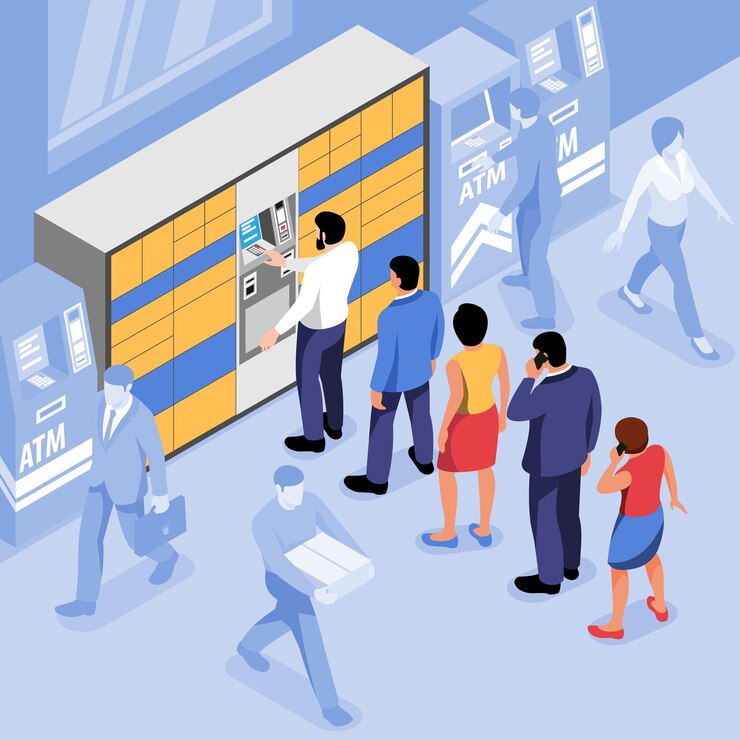
Introduction
We’ve all been there: standing in long lines, tapping our feet, checking the time, getting frustrated. Whether it’s at a hospital, bank, government office, or even a restaurant — queues are part of life. But what if technology could fix that?
Welcome to the world of the Queue Management System (QMS) — a silent revolution transforming public and private services across Pakistan. From Islamabad’s clinics to nationwide institutions, this digital innovation is redefining customer experience.
In this blog, we’ll explore:
-
What a queue management system is
-
Why it matters more than ever
-
How it’s being implemented in Islamabad and beyond
-
The technology driving it
-
Industry-specific use cases
-
The social and economic benefits
-
And frequently asked questions to clear every doubt
Let’s dive into the future — where waiting in line is no longer a pain.
📊 What is a Queue Management System?
A Queue Management System (QMS) is a digital solution designed to organize, control, and streamline waiting lines or queues.
Instead of standing in physical lines, people use:
-
Token machines
-
Mobile apps
-
Digital kiosks
-
SMS alerts
-
Real-time dashboards
to get in line, get updates, and be served efficiently and fairly.
It removes the confusion of:
-
“Who’s next?”
-
“How long is the wait?”
-
“Did someone skip the line?”
By digitizing the process, it creates order out of chaos.
🔍 How Does a Queue Management System Work?
A standard QMS includes:
📌 1. Ticket Issuing System
Via kiosk, app, or web interface.
📌 2. Queue Display System
Screens showing real-time queue status and counter info.
📌 3. Counter/Service Integration
Staff gets digital info about who’s next, what they need.
📌 4. Central Dashboard
Admin control over queue settings, traffic volume, and analytics.
📌 5. Customer Notification
SMS alerts or screen prompts guide customers.
It’s not just about saving time — it’s about building trust, transparency, and flow in service delivery.
🏙️ Queue Management System in Islamabad
As the capital city, Islamabad is leading by example in digital transformation. Its institutions — both public and private — are rapidly integrating smart queue systems.
📍 Where It’s Being Used in Islamabad
-
Hospitals & Clinics
Shifa International, PIMS, and other private labs use digital queue systems for outpatient and diagnostics. -
Government Offices
NADRA centers, passport offices, and excise departments are implementing QMS for better crowd control. -
Banks & Financial Institutions
From Meezan to HBL and UBL — QMS is now a standard at most urban branches. -
Embassies and Visa Centers
Appointments, document submissions, and walk-ins are now managed via queue tokens. -
Restaurants & Fast Food
Even chains like McDonald’s and local eateries are exploring kiosk-based ordering queues.
📈 Islamabad’s Tech Readiness
-
High smartphone penetration
-
Strong IT infrastructure
-
Growing preference for mobile-first solutions
-
Government push under Pakistan Vision 2025
Islamabad is becoming a model city for smart citizen services, and QMS is a core part of that shift.
🇵🇰 Queue Management System in Pakistan
Beyond the capital, queue management systems are spreading rapidly across Pakistan, driven by necessity, innovation, and rising customer expectations.
🏥 Healthcare Sector
Hospitals in Lahore, Karachi, and Peshawar are now using:
-
Electronic token systems
-
Doctor appointment slots via SMS
-
Real-time bed/room availability displays
This is reducing crowding, saving lives, and building accountability in both public and private health facilities.
💼 Government Institutions
Departments like:
-
NADRA
-
Passport Office
-
Excise & Taxation
-
EOBI
-
WAPDA & Gas Offices
are moving from chaotic lines to organized digital queues.
Result? Happier citizens, faster processing, and fewer staff conflicts.
🏦 Banking and Finance
Banks were early adopters of QMS. Now, most major banks offer:
-
Appointment scheduling
-
Digital token displays
-
Fast-tracking services for senior citizens and differently abled individuals
🏫 Education Sector
Universities and exam boards use queue management for:
-
Result collection
-
Document verification
-
Fee deposit
-
Counseling and academic queries
📈 Private Sector & Retail
Malls, car service centers, salons, and tech support centers are all investing in QMS to enhance customer satisfaction and operational efficiency.
📱 The Role of Technology in Modern QMS
Today’s queue management systems aren’t just machines — they are powered by AI, data analytics, IoT, and mobile-first design.
🤖 AI & Data Analytics
-
Predict peak times
-
Optimize staff allocation
-
Understand customer flow patterns
📲 Mobile Apps & SMS Integration
-
Book slots before arrival
-
Track wait time in real-time
-
Get service updates on the go
🖥️ Touchless Kiosks
-
Post-COVID demand for minimal contact
-
Used in hospitals, food services, and public transport hubs
🌐 Cloud-Based QMS
-
Centralized control
-
Used by businesses with multiple branches
-
Secure data backup and remote access
🌟 Benefits of Queue Management Systems
Implementing a QMS can change the game. Here’s how:
✅ 1. Enhanced Customer Experience
-
No unnecessary waiting
-
Clear instructions and updates
-
Less anxiety and frustration
✅ 2. Higher Operational Efficiency
-
Reduced chaos at counters
-
Better staff performance
-
Data-backed decisions
✅ 3. Scalability & Flexibility
-
Expand to new locations with cloud setups
-
Handle multiple queues at once
-
Serve walk-ins and appointments side-by-side
✅ 4. Health and Safety
-
Promotes social distancing
-
Minimizes physical contact
-
Reduces staff burnout
✅ 5. Performance Tracking
-
View service times
-
Identify high-demand hours
-
Benchmark staff performance
QMS turns raw service into a strategic, data-driven workflow.
🧠 Real World Use Cases
🏛️ NADRA Office Lahore
Before: 3-4 hour average wait
After QMS: Reduced to 35–40 minutes average
🏥 Private Hospital in Karachi
Added a kiosk + app-based appointment system:
Cut OPD congestion by 60% within 3 months
🏦 Bank in Islamabad
Introduced elderly/special queue + live dashboard:
Improved CSAT scores by 25%
🏁 Conclusion
A Queue Management System might seem like a small change, but it delivers huge impact. In Islamabad, across Pakistan, and globally, it’s reshaping how people access services — with dignity, speed, and clarity.
From hospitals and banks to public offices and retail chains, the future is clear: smart queues, smarter services.
In a world that values time more than ever, QMS isn’t optional — it’s essential.
If Pakistan continues to invest in these systems, we’re not just reducing wait times — we’re unlocking national productivity.
❓ FAQs
1. What is a queue management system?
It’s a digital tool that helps manage waiting lines using tokens, mobile apps, and real-time displays to organize and streamline customer flow.
2. Is queue management used in Islamabad?
Yes! From banks and hospitals to government offices, Islamabad is actively using QMS to improve service delivery and reduce congestion.
3. What are the benefits of QMS in Pakistan?
Key benefits include better service, reduced wait times, data-driven management, higher customer satisfaction, and improved safety.
4. Can QMS be used for small businesses?
Absolutely! Many small clinics, salons, and local offices use simple QMS apps or token displays to manage client flow effectively.
5. Is QMS costly to install?
Not necessarily. Basic QMS tools can be affordable, while larger setups offer advanced features for bigger organizations. Costs depend on features and scale.



